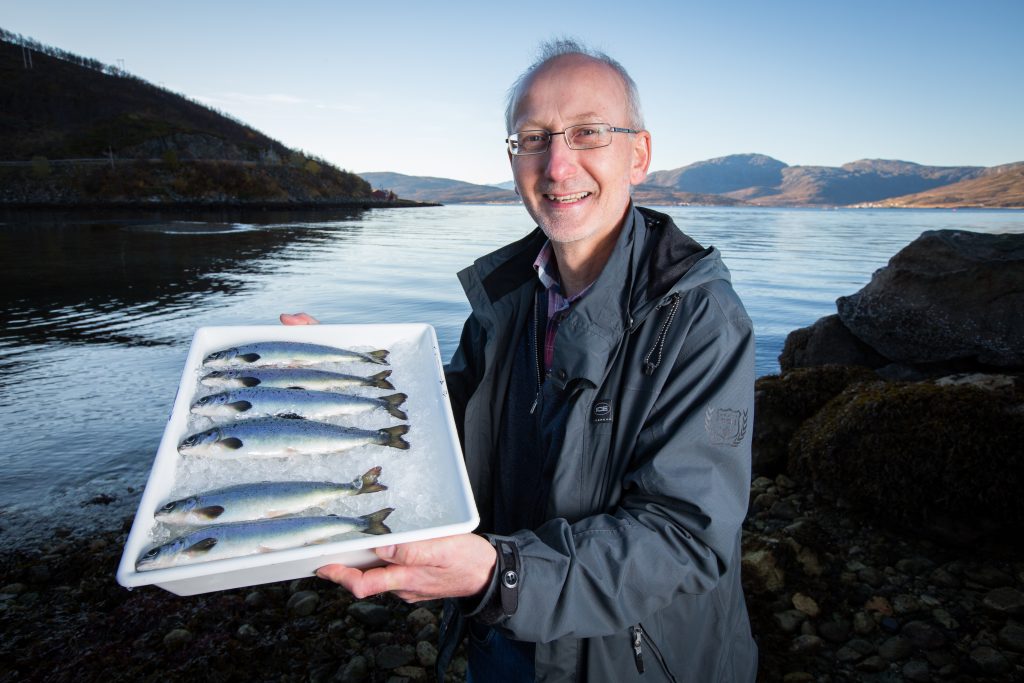
Milestone in farmed salmon research
February 9, 2018
By Ruby Gonzalez
After 10 years of research Nofima scientists have finally “cracked the code” to produce sterile farmed salmon.
Inducing sterility in farmed salmon will make them unable to interact genetically with wild salmon populations.
"In practice we don’t touch the genes, but affect a protein that is necessary to enable the fish to produce gametes,” said senior researcher Helge Tveiten.
They have not seen any indications that the fish will become sexually mature or develop the urge to migrate in order to spawn.
Paving the way for the research was a previous study carried out on zebra fish, which identified a few genes that are decisive in the development of gametes.
“The salmon we have researched do not develop gametes, and will never be sexually mature,” Tveiten added. “We see a tiny egg sac in the female fish, but no eggs are formed. The male fish develops what appears to be normal sexual organs, but they don’t have sperm cells.”
Tveiten’s work is part of the SalmoSterile research project financed by the Research Council of Norway. The project is a collaboration between the Norwegian Institute of Marine Research (NIMR) and several major industrial companies, including AquaGen.
 Nofima senior researcher Helge Tveiten
Nofima senior researcher Helge Tveiten Advertisement
- Study: Canola safe to use in salmon feed
- Washington State Governor, Senate back anti-salmon farming bill





